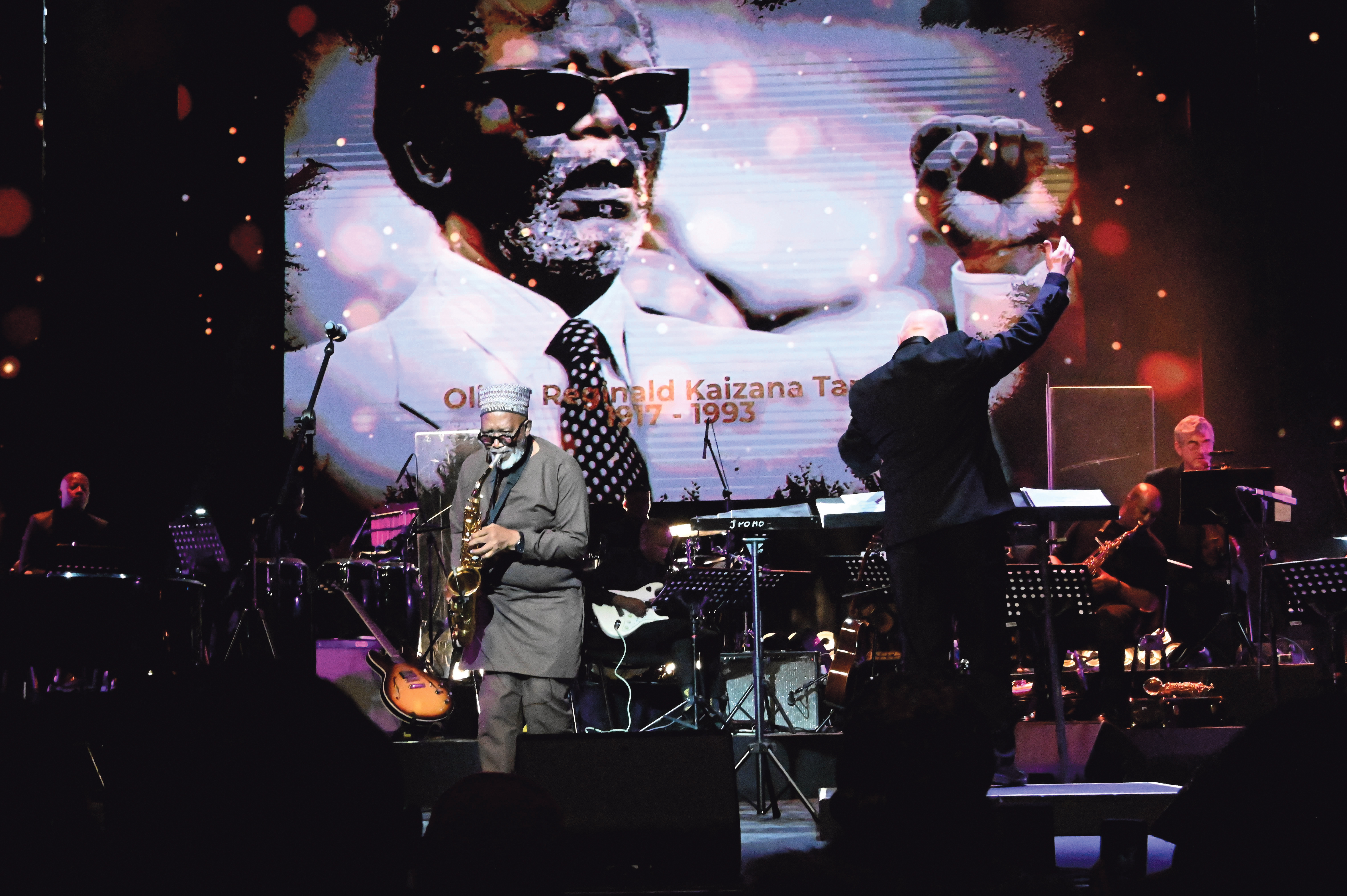The National Arts Festival in Makhanda commemorates 50 years this year, and the Curated Programme reflects on universal themes that rang true at its founding and all subsequent editions, while it interrogates the urgency of distinct challenges particular to the here and now.
Selected through a process of application and curatorial panel review, the Curated Programme is a creative litmus test of society and a reflection of the artists’ lenses on South Africa and the world. It is a dialogue of ideas in a restless era as world orders shift, violence escalates and uncertainty prevails on the cusp of a post-truth world.
“To encompass all that the festival could and has ever been in a landmark year such as this is an overwhelming task and underlies the festival’s role in breaking out new work and reimagining older ones,” says artistic director Rucera Seethal.
“So, in creating this programme, we have played with the juxtaposition of old and new and the emergence of ambitious ideas that bring the festival into a new era of cross-border and international collaboration.”
Justice and hope
Questions and theories about justice, both environmental and social, feature prominently. Empatheatre employs a research-based methodology for creating works that tackle complexity. It celebrates its 10th anniversary with a retrospective of two works.
Lalela uLwandle (featuring Alison Cassels, Mpume Mthombeni and Rory Booth) has travelled internationally and tackles issues of justice for those who live with and from the ocean; The Last Country (with Mpume Mthombeni, Philisiwe Twijnstra, Nompilo Maphumulo and Zintle Bobi) explores the stories of women migrants from the Democratic Republic of Congo, Zimbabwe, Somalia and rural KwaZulu-Natal.
Ghostprints for the Abyssal Plains/The Abyssal Zone is a visual artwork by Christine Dixie, with sound installation by Corinne Cooper, in the depths of the Settlers National Monument. It explores the dark, deep and silent Abyssal Zone and its glittering minerals needed for batteries, wind turbines and electric vehicles.
Further explorations of, and within, the environment run through Nature is Louder — Street Art Intervention, in Makhanda’s public spaces with a collaborative, site-specific and large-scale mural by a dynamic crew of Makhanda artists led by Mook Lion.
African storytelling
As the festival moves into the next 50 years, it increases its focus on work from, and in collaboration with, other countries on the continent. This broader position steps towards future African exchange and collaboration, and the role of the festival as an international window on African creativity.
Diartskonageng brings its fresh take on theatricality and celebrates African aesthetics. The Red on the Rainbow, an ensemble piece with five actors supported by trumpeter and percussionist duo Sydney Mavundla and Volley Nchabeleng, was written and directed by Monageng Motshabi and choreographed by the late Mandla Mngevu. It’s an experiment with ways of using multiple points of view in storytelling, movement and soundscape.
Sketch Productions’ 1 yard, 7 shacks is a kwai-hip-hop theatre performance piece. Written and directed by Paul Noko Maja, it looks at the linguistic and cultural influence of Isicamtho.
Playwright and director Napo Masheane wanders into myth and history with the story of Morena Moshoeshoe in Thaba Bosiu: The Musical from the Performing Arts Centre of the Free State. It teaches about Basotho culture and customs through music, dance and indigenous games.
Sello Pesa’s Nokeng ya Kubetu asks questions of identity, heritage and tradition and how they can be resolved and understood in changing times.
Continental connections
The groundbreaking multinational dance development programme Third Space is a collaboration between the festival, the French Institute of South Africa and the French Ministry for Europe and Foreign Affairs, with three new dance works.
Choreographers and scenographers from South Africa, Uganda, Mozambique and Tanzania work with dancers from three local community arts centres to produce an original dance work that will première in their host communities before moving to the festival.
Read more in Daily Maverick: National Arts Festival battles to get much-needed Lottery funding
History, nostalgia and retrospection
There are various reflections on the festival’s history and context.
In the visual art exhibition Mattering: 50 Years of The National Arts Festival, curators Raphaela Linders and Viwe Madinda, working with writer Robyn Perros, lift archival fragments from the five decades of archives.
Rhodes University’s exhibit In Conversation: Four Decades of Artworks by Current and Former Staff of the Rhodes University Fine Art Department draws primarily from the university’s extensive art collection.
In the reflective dance piece Sometimes I have to lean in… Alan Parker and Gerard Bester reminisce about what the passing of time means for artists, performers, and indeed, festivals.
Spirit, ritual and celebration
Standard Bank Young Artist for Theatre MoMo Matsunyane takes the role of writer and director to explore themes of manipulation and deceit when a charming new priest offers a better life to an impoverished community in her work Ka Lebitso La Moya.
Standard Bank Young Artist for Performance Art winner of 2023 Angel Ho takes audiences through a multisensory experience showcasing dance, music, costume and video, all rooted in queer ideology in Dis MY KANT, featuring Drag King Casual Harry.
Standard Bank Young Artist for Jazz Darren English presents The Darren English Quintet 1 and 2, a presentation of original materials including collaborations with local and international musicians.
Wegswysers duur die Blinkuur by Stephané Conradie, Standard Bank Young Artist for Visual Art, looks at the tensions and beauty in intergenerational rituals.
Generational bridges
The Curated Music Programme brings a diverse collection of sounds and experiences. For the big weekend acts, a new generation of musical talents feature, with Zoë Modiga leading the charge, and Sipho “Hotstix” Mabuse returning to the festival at 72.
Makhanda’s celebrated International Library of African Music presents a focus on African music and a Joza hip-hop project. The Makhanda Jazz Festival, incorporating the National Youth Jazz Festival, once again features South African greats and newbies. DM
The full programme is live and open for booking at www.nationalartsfestival.co.za





